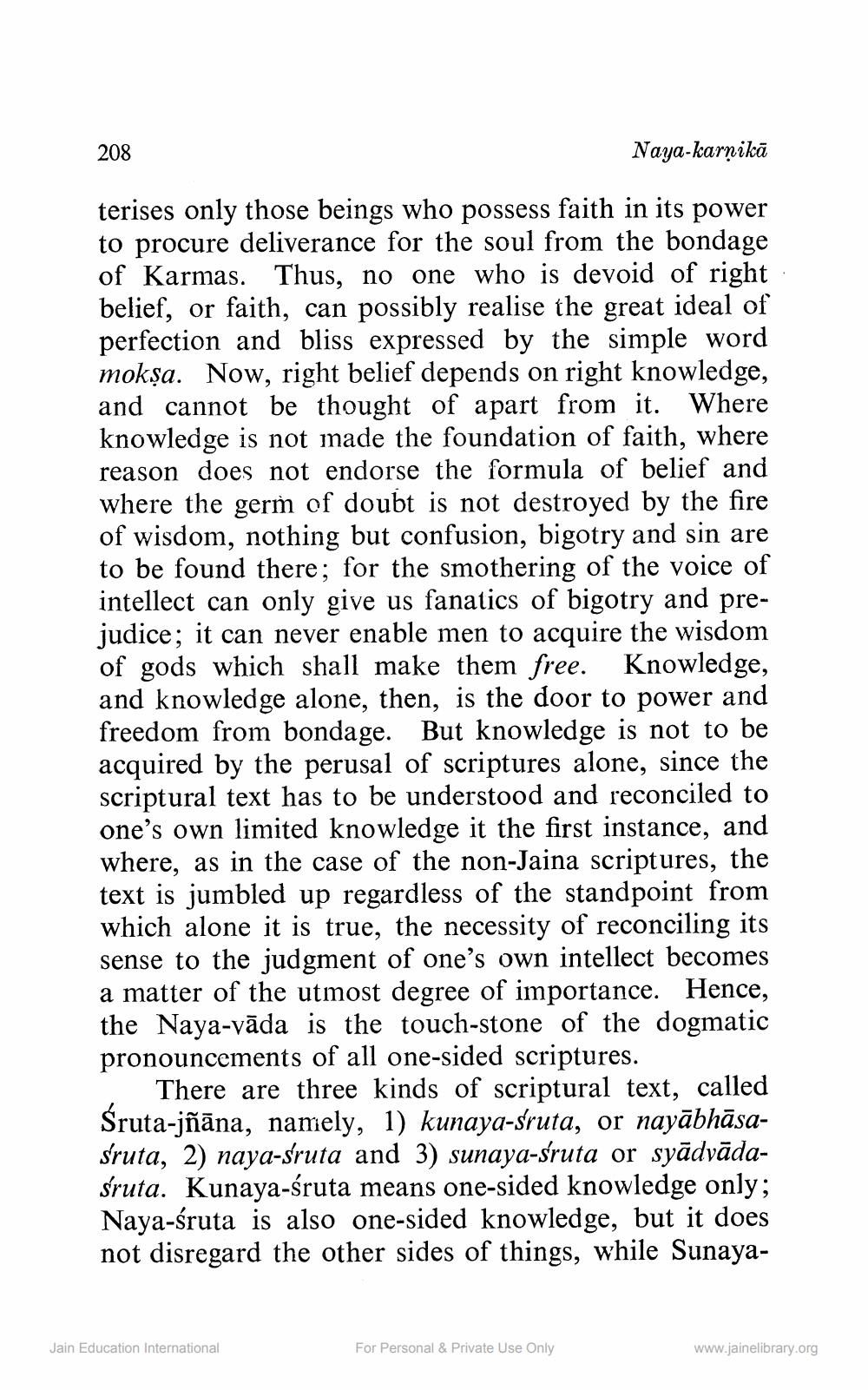________________
Naya-karnikā
terises only those beings who possess faith in its power to procure deliverance for the soul from the bondage of Karmas. Thus, no one who is devoid of right belief, or faith, can possibly realise the great ideal of perfection and bliss expressed by the simple word mokṣa. Now, right belief depends on right knowledge, and cannot be thought of apart from it. Where knowledge is not made the foundation of faith, where reason does not endorse the formula of belief and where the germ of doubt is not destroyed by the fire of wisdom, nothing but confusion, bigotry and sin are to be found there; for the smothering of the voice of intellect can only give us fanatics of bigotry and prejudice; it can never enable men to acquire the wisdom of gods which shall make them free. Knowledge, and knowledge alone, then, is the door to power and freedom from bondage. But knowledge is not to be acquired by the perusal of scriptures alone, since the scriptural text has to be understood and reconciled to one's own limited knowledge it the first instance, and where, as in the case of the non-Jaina scriptures, the text is jumbled up regardless of the standpoint from which alone it is true, the necessity of reconciling its sense to the judgment of one's own intellect becomes a matter of the utmost degree of importance. Hence, the Naya-vāda is the touch-stone of the dogmatic pronouncements of all one-sided scriptures.
There are three kinds of scriptural text, called Śruta-jñāna, namely, 1) kunaya-sruta, or nayābhāsasruta, 2) naya-sruta and 3) sunaya-sruta or syādvādaśruta. Kunaya-śruta means one-sided knowledge only; Naya-śruta is also one-sided knowledge, but it does not disregard the other sides of things, while Sunaya
208
Jain Education International
For Personal & Private Use Only
www.jainelibrary.org




